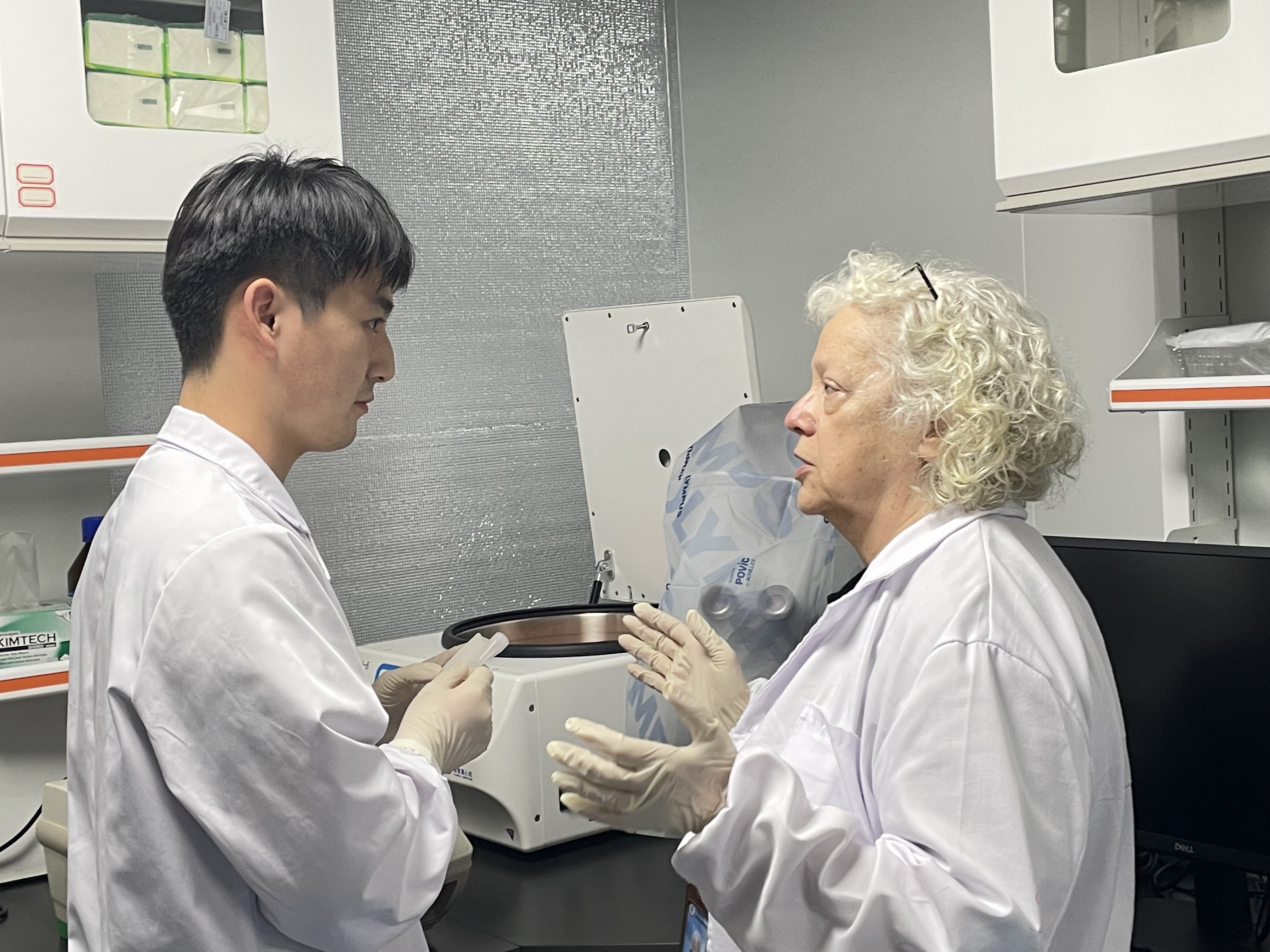New Experiences, Challenges Make True Scientist

Professor Diana Boraschi (right) instructs her student in laboratory.
(COURTESY PHOTO)
By Diana Boraschi
I love fundamental research, but I do not recommend it to people who are unwilling and not prepared to dedicate their lives to it. People conducting fundamental research do not become rich and do not become famous. The satisfaction gained from work is exclusively personal and I am delighted with what I have done and have no regrets.
Fundamental research sets the basis for translational research and subsequent development and industrialization. Working in the industry taught me a very important lesson: you must focus clearly on your research, always have your goal, and never deviate from it. I only engage in fundamental research that will be useful for improving human health in the future. Working on immunity makes this task very helpful because functional immunity keeps us safe in an environment with dangers like viruses, bacteria, and parasites.
In terms of factors that advance sci-tech careers, the first is curiosity, the need to know things that are unknown, and understand things that are still mysterious. Then comes passion, doing this work because this is what fills up my mind and life. The third is dedication: studying, thinking critically, reasoning, examining, hypothesizing, revising and reconsidering, planning, monitoring, controlling, and replanning.
It is intense and relentless conceptual work, in addition to the technical skills and maniacal precision needed for the experimental work.
Eventually, it is a challenge. This work is a continuous challenge. I want to continue facing new challenges and try to solve them because this is the way to proceed. Challenges and new experiences keep us alive and make a researcher become a true scientist.
Regarding the words to the future scientist, there are different careers that one could pursue in the sci-tech field. All have their merits and attractive aspects. Choosing one or another very much depends on individual attitude. I have a family and wonderful children and grandchildren, meaning that as a woman, I did not have to sacrifice my personal life for my career. A scientific career is still more challenging for women in our society. You have to love the career you choose because this will take up a large part of your life and it would be very unfortunate if you do not like it. Thus, to young scientists, I recommend following their feelings and inclinations. There are no good careers and bad careers.
My future working plans are simple: continue exploring and teaching while I am alive.
Italian national Professor Diana Boraschi serves as the chief scientist of the Laboratory of Inflammation and Vaccines at SIAT-CAS. She is a winner of 2022 Chinese Government Friendship Award.


